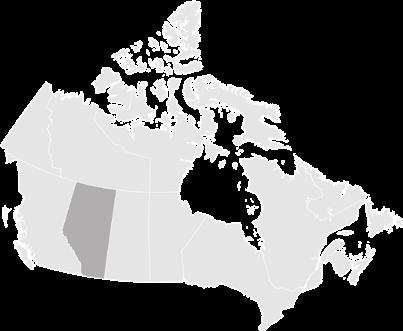
2 minute read
Part 1. Introduction
The context
• In aging societies, the prevalence of dementia is increasing rapidly.
Advertisement
• Francophone minority communities are aging communities in all Canadian provinces, but not in the territories.
• In Canada, it is estimated that over 419,000 people aged 65 and over have been diagnosed with dementia (Government of Canada, 2019).
• “Dementia” is a “term used to describe symptoms affecting the brain that include a decline in cognitive abilities such as memory; awareness of person, place, and time; language; basic math skills; judgment; and planning. Mood and behaviour may also change as a result of this decline. Dementia is a progressive condition” (Government of Canada, 2019).
• In Canada, the prevalence rate of dementia, including Alzheimer’s disease, for people aged 65 and over was 6.54% in 2017 (Public Health Agency, Infobase 2022).
• The scientific community recognizes that it is possible to act on modifiable risk factors and to strengthen those that protect against the disease.
Project objectives
• The objectives of the “L’Abécédaire d’un cerveau en santé - Sensibilisation à la démence dans l’Ouest et le Nord” are aligned with those of Canada’s first National Dementia Strategy and are to: a) prevent dementia; b) reduce stigma; and c) encourage and support communities to become more inclusive of people living with dementia.
• The L’Abécédaire d’un cerveau en santé project focuses on the linguistic dimension and examines the issues facing Francophones in minority communities in three provinces and one territory in the West and North.
• The project is led by RésoSanté ColombieBritannique. The other three partner networks are:
- Réseau Santé en français de la Saskatchewan
- Réseau Santé Alberta
- Partenariat communauté en santé au Yukon
• The project has two components: a) awareness and b) research. The first component aims to inform Francophone communities, empower organizations and stakeholders, and support minority Francophone organizations and individuals.
• The research component of the project aims to produce knowledge to better understand the problem of dementia and its impact on Francophone communities in the targeted provinces and territory.
• The specific objectives were: a) to produce a summary of the scientific literature; b) to develop a sociodemographic and health profile of Francophone minorities in the three target provinces and territory; c) to document the needs and the gaps for services for Francophones with cognitive impairment and their family caregivers; d) and to mobilize knowledge.
• This report summarizes the results of the research component and presents the needs and shortcomings of Francophone minority communities in Western and Northern Canada.
Method
• The researchers used qualitative (semistructured interviews) and quantitative methods (data from the 2016 Census, the Canadian Community Health Survey, and an online survey) to address the stated objectives.
• A brief review of the literature was carried out at the beginning of the project to inform the whole process.
• Socio-demographic and health profiles of Francophone populations in British Columbia, Alberta, Saskatchewan and Yukon were developed in order to gain a better understanding of the social determinants of health and lifestyle.
• Twenty-nine semi-structured interviews (N=29) were conducted with four groups of participants to learn more about existing services and resources for cognitive impairment, including dementia, in the three target provinces and in Yukon. These four groups were made up of : a) officials of local and/or provincial community organizations that offer programs and services to Francophones in the three targeted provinces and territory (N=12); b) coordinators for Frenchlanguage services in each of the Health and Social Services ministries (N=4); c) the executive directors for the four health partner-networks in French involved in the project (N=4); d) family caregivers of relatives needing support for cognitive disorders, including dementia (N=9).
• A socio-demographic profile was prepared for each of the provinces and territory mentioned.
• The online survey (N=282) provided a portrait of knowledge about cognitive disorders/ dementia in the target communities; identified the needs and resources used by family caregivers, Francophone organizations, care providers and members of the Francophone community in general; and provided a better understanding of the gaps and priorities in terms of information, prevention, care, assistance and support.
• The triangulation of the results obtained will enable decision makers and stakeholders to better identify the needs of Francophone communities and to choose relevant and adapted intervention strategies.








